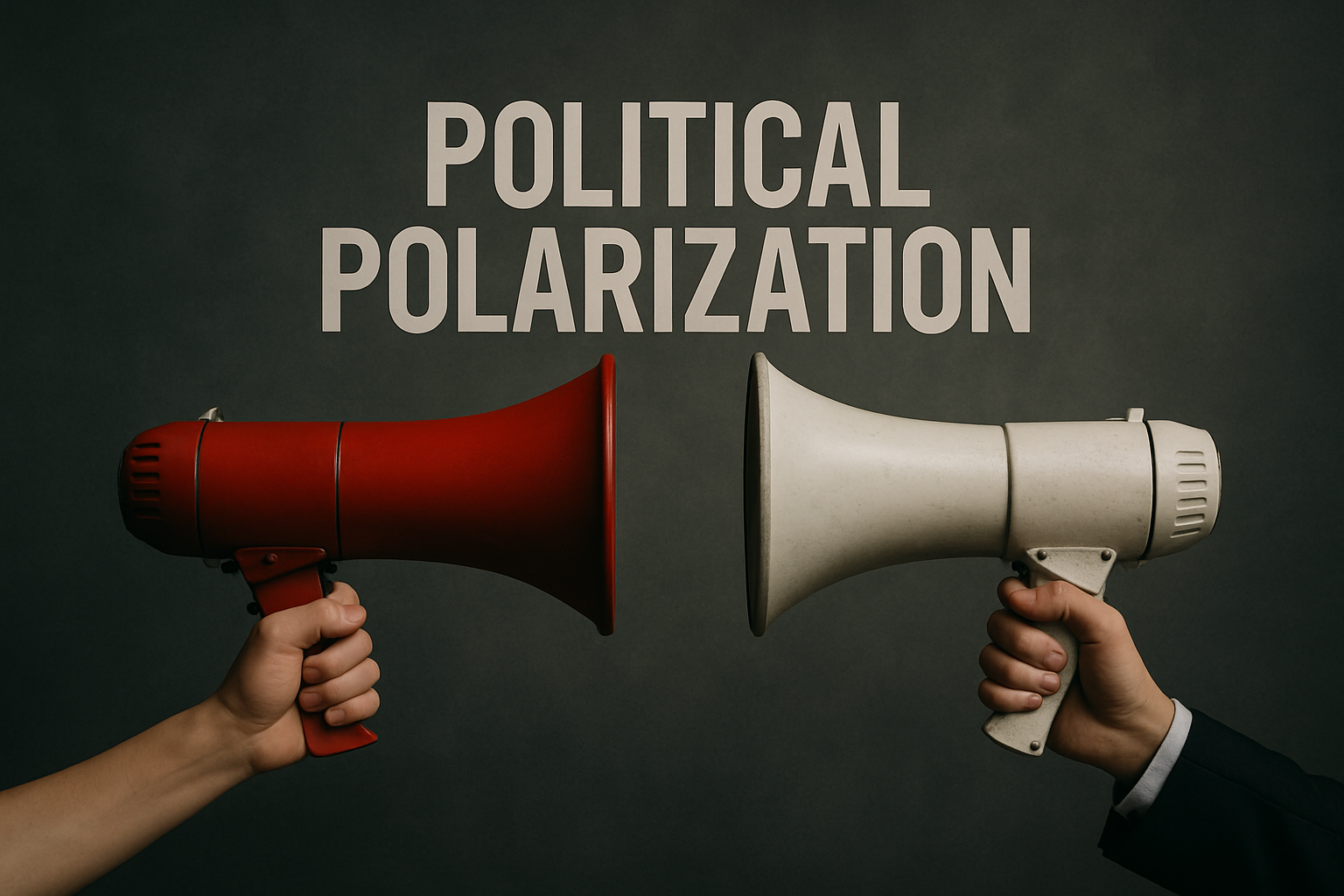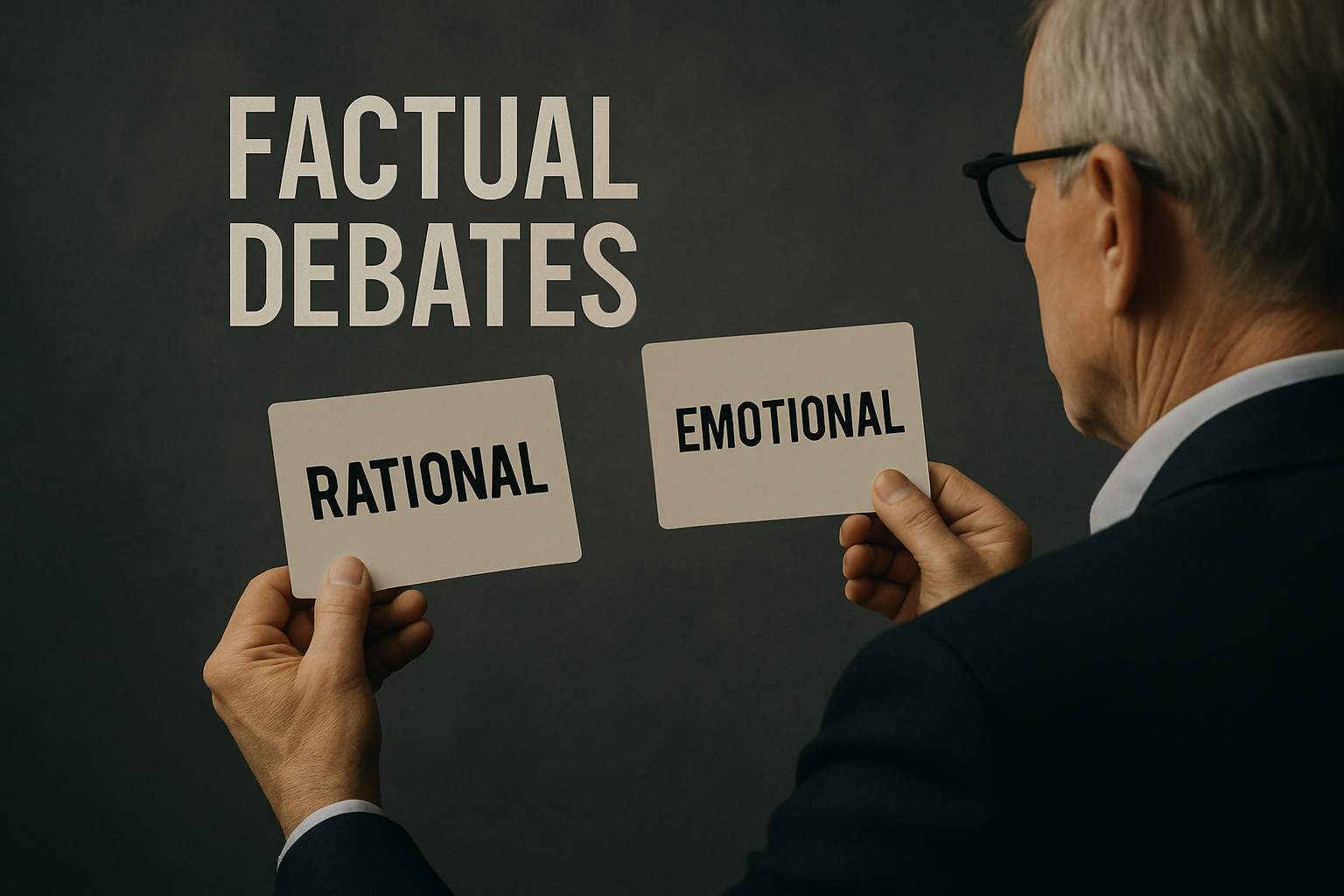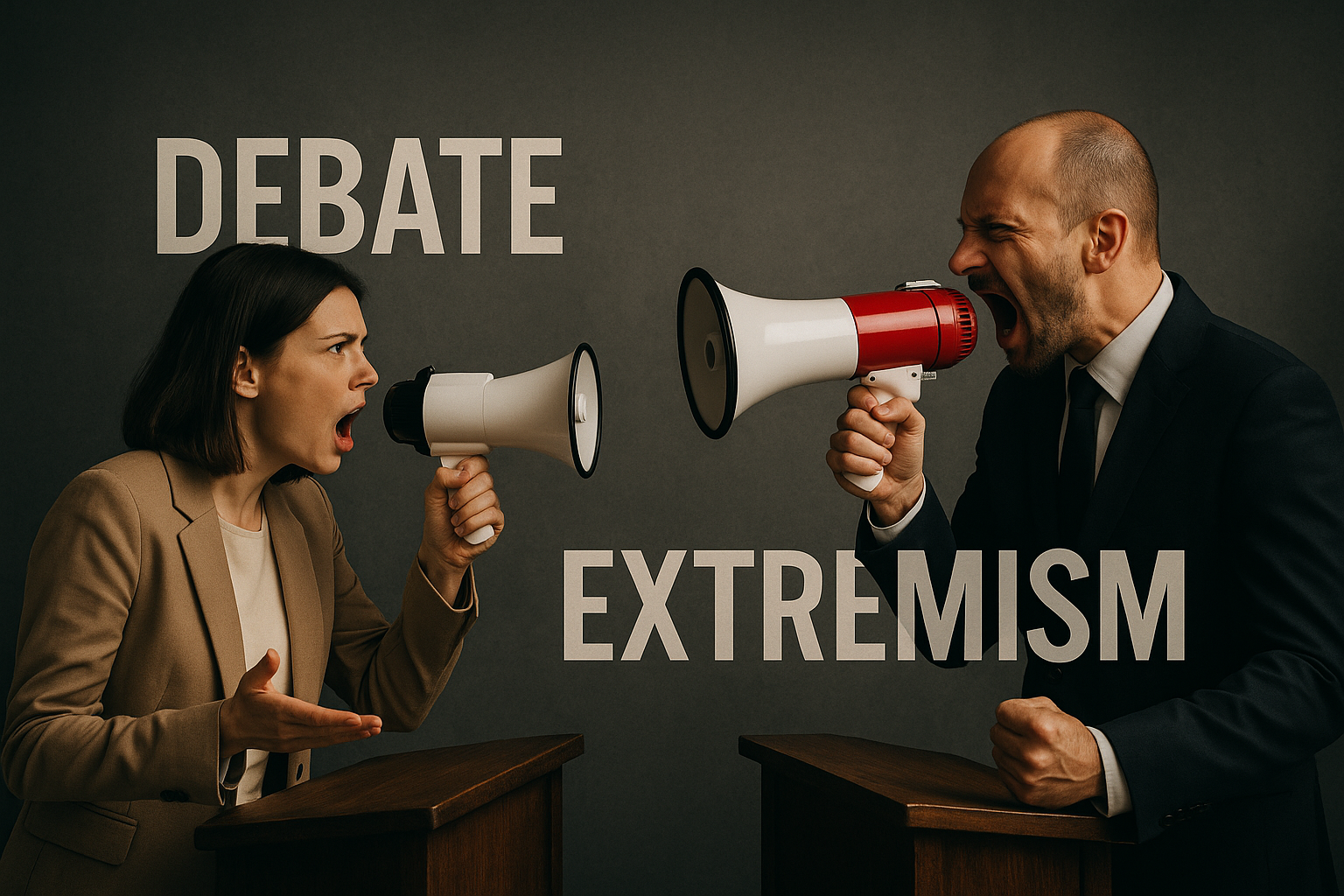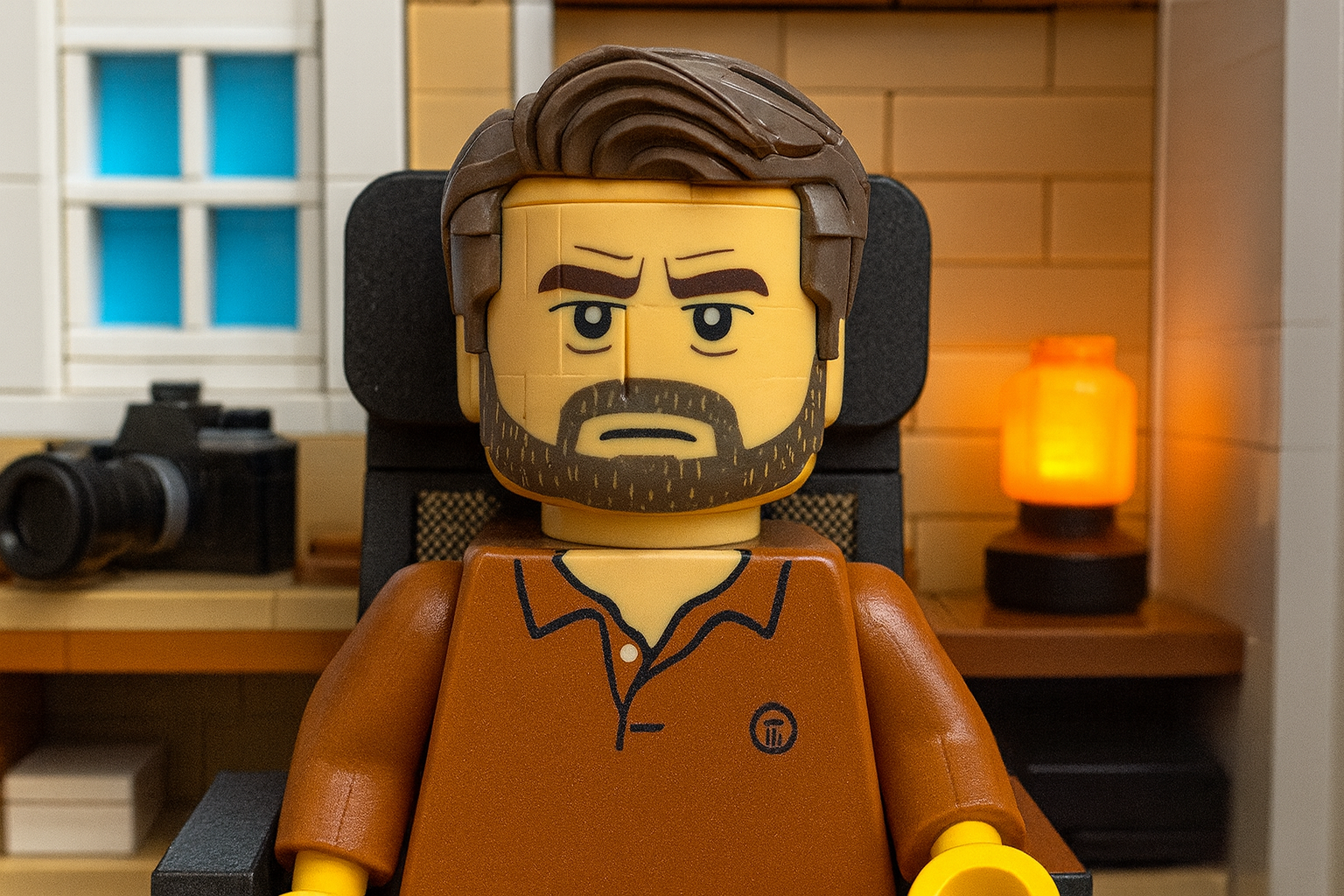What happens when pride and ideology stand in the way of progress and learning from history?¶
We like to think history teaches us. That every mistake leaves a mark deep enough to make us wiser next time. But I’m starting to doubt that. Watching the world today, in politics, in business, and in our own lives, I see the same pattern repeating: pride blocks learning, ideology blinds reason, and ego drives us toward collapse. This isn’t a rant. It’s an observation. Maybe even a confession. Because I see it everywhere, in leaders, in companies and in myself.
Pride as the killer of learning¶
Pride is the invisible wall between failure and growth. It’s what makes people defend a bad idea long after the evidence has turned against them. Pride turns error into identity. Once that happens, change feels like defeat and defeat is unacceptable. In politics, pride explains why governments double down on broken strategies. Admitting a mistake means admitting weakness, and weakness costs votes. Policy becomes theatre. Language becomes defense. The result is predictable: societies that stop adapting slowly rot from the inside out. In companies, pride is even more subtle. It hides under words like vision and legacy. I’ve seen executives protect obsolete architectures, outdated strategies, or toxic cultures simply because they built them. Pride whispers: “If this fails, you fail.” So they refuse to pivot. Whole industries have fallen this way. Nokia didn’t die because it lacked engineers, it died because pride made it believe it couldn’t fail. In our personal lives, pride is smaller but no less dangerous. It’s the argument we can’t walk away from, the apology we never give, the need to be right even when being right achieves nothing. Pride isolates us. It turns relationships into contests. It makes growth impossible. History is full of warnings, yet we still mistake pride for strength. We tell ourselves conviction is virtue, when in truth it’s often a shield for insecurity.

Ideology as the comfort zone¶
Ideology gives shape to chaos. It offers certainty in a world that refuses to make sense. That’s its appeal, and its trap. When politics becomes identity, debate becomes impossible. Every disagreement turns personal, every challenge becomes betrayal. Ideology reduces complex issues into simple moral binaries: good versus evil, us versus them. It feels righteous, but it kills nuance. And without nuance, no real progress can happen. Corporations are no better. They now brand themselves around moral postures, sustainability, inclusivity, innovation, often with no depth behind the slogans. The goal isn’t truth or change. It’s alignment. Ideology, even when marketed as virtue, becomes a form of compliance. The message: “Say the right things, not the honest ones.” The modern woke movement began as a necessary correction, a demand for fairness, equality, and accountability. Much of that was right and overdue. But like any ideology, it risks drifting from purpose into performance. When awareness becomes weaponized, dialogue dies. The pendulum can swing so far toward moral absolutism that it starts to resemble the intolerance it was meant to fight. The question isn’t whether woke is wrong. It’s how far we’ve let it harden into dogma where fear of being on the wrong side replaces curiosity about the right one. And in life, ideology shapes how we see others. People build belief systems like armor. Politics, diet, parenting, fitness, every choice becomes a declaration of tribe. Social media amplifies this by rewarding certainty. Doubt doesn’t trend. Humility doesn’t get engagement. The result is a world where everyone shouts and no one listens. Somewhere along the way, we forgot that balance isn’t cowardice. “Mellanmjölk” has become an insult as if moderation meant moral failure. But the truth is that progress rarely lives in the extremes. Facts do. Facts survive debate, emotion doesn’t. We need to talk again. To disagree without destroying. To listen without surrendering. Because without factual, grounded discussion, we drift into noise, and noise kills understanding faster than hate ever could. The irony is that ideology promises belonging but delivers isolation. It connects us through slogans, not empathy. It teaches us to signal virtue instead of practicing it.

Belonging, ego, and the illusion of power¶
Ideology survives because it fills emotional gaps. At its core, it’s not about logic it’s about belonging. We want to be part of something larger than ourselves. We want to be seen, understood, and validated. That’s the human side of ideology. It gives us identity when reality feels uncertain. But belonging also breeds dependence. The moment we tie our self-worth to a collective belief, dissent feels like exile. And that’s where ego steps in. Ego hates uncertainty. It feeds on validation. Once ego fuses with ideology, power becomes personal. We stop asking “Is this right?” and start asking “Does this make me look right?” You see it in politics: leaders chasing symbolic victories instead of practical results. You see it in companies: teams defending their domains instead of fixing the system. And you see it in everyday life: people performing their opinions online, policing each other’s words, competing for moral high ground rather than connection. The illusion of power comes from visibility. But real power, the kind that shapes the world, comes from self-awareness. The ability to say “I might be wrong.” That’s rare now. Because visibility feels safer than vulnerability. I sometimes think ego has replaced community as our moral compass. We no longer need to be good; we just need to be seen as good. And when that happens, truth becomes optional.

The lost art of self-correction¶
The most resilient systems, biological, political, or corporate, share one trait: they correct themselves quickly. Evolution, markets, and democracy all depend on feedback loops. Remove them, and collapse follows. Today, feedback is everywhere, yet it means less than ever. We have analytics, polls, dashboards, engagement metrics. But those aren’t feedback loops, they’re mirrors of confirmation. They show us what we already believe, amplified. Real correction requires the courage to face contradiction. In politics, populism thrives because correction is seen as betrayal. Leaders who admit mistakes are punished, not respected. The system rewards stubbornness. In companies, the same pattern repeats. Teams build KPIs to validate success, not to measure learning. The culture of “fail fast” often means “fail shallow.” On a personal level, we do it too. We curate our lives to look consistent. We filter out anything that challenges our self-image. Growth becomes cosmetic. The algorithm approves. The mirror smiles back. History shows that every empire, every corporation, every movement that loses the ability to self-correct eventually breaks. The end doesn’t come from external enemies, instead it comes from internal denial. Rome fell that way. Kodak fell that way. Maybe we’re falling that way too.

The illusion of progress¶
We live in an age obsessed with change. Every new version, every update, every initiative is marketed as progress. But change is not progress. Not all movement is forward. We mistake motion for momentum because it feels productive. Politics cycles through new slogans, corporations chase new trends, individuals reinvent their brands and yet the underlying patterns stay the same. We call it disruption, but most of it is repetition in disguise. The real measure of progress is learning. Have we understood something new? Have we corrected something old? If not, then we’re just spinning faster inside the same wheel. Sometimes I wonder if our civilization has become addicted to novelty because it’s easier than growth. True progress requires reflection, and reflection is uncomfortable. It demands humility, patience, and silence. None of which fit into a quarterly report or a social feed.
Are we too egocentric?¶
The short answer is yes. But the longer answer is that we’ve built an entire culture around ego, a system designed to reward visibility over substance. In politics, charisma outweighs competence. In companies, storytelling outranks delivery. In personal life, self-expression replaces self-awareness. We measure our worth by reactions, not reflection. The ego thrives in this environment because it’s endlessly fed by attention, by outrage, by validation. It grows while empathy shrinks. When everyone’s busy performing their own story, nobody’s listening to anyone else’s. Technology amplifies this distortion. The more we connect, the less we communicate. Every platform rewards the loudest version of ourselves. Every opinion becomes a brand asset. The self turns into a project, not a person. This isn’t a moral failure instead it’s an environmental one. We’ve engineered systems that exploit our instincts. The result is a civilization that feels increasingly hollow: rich in expression, poor in introspection. I sometimes think the modern ego is just an upgraded survival mechanism. When the world feels unstable, the self becomes the only stable thing to defend. But if everyone does that at once, the collective collapses. Society becomes a competition of mirrors.
Are we doomed?¶
Maybe. But not in the apocalyptic sense. Doom doesn’t always come with fire and ruin. Sometimes it comes quietly as a gradual loss of curiosity, a shrinking of empathy, a society that stops asking hard questions because it’s too busy proving itself right. We’re not doomed because of pride or ideology alone. We’re doomed when we stop recognizing them in ourselves. When every problem becomes someone else’s fault, when every debate becomes a battle of egos, when history becomes a prop instead of a teacher, that’s when decline begins. But there’s another side to this. If doom is a mindset, so is survival. Humility can still be learned. Curiosity can still spread. The same technology that isolates us can also connect us, if we use it differently. Companies can still reward truth over comfort. Politics can still value integrity over noise. People can still listen. The first step isn’t collective. It’s individual. It’s the decision to reflect instead before react. To question instead of posture. To admit that we don’t have all the answers, and maybe never will.

Watching the world¶
I’ve started to think that progress doesn’t die from malice. It dies from noise. From too many people talking and too few thinking. From leaders who mistake slogans for solutions. From teams that chase alignment instead of insight. From individuals who’d rather be seen as right than be part of something real. I’ve seen brilliant engineers ignore warnings because it threatened their pride. I’ve seen politicians destroy trust because it threatened their image. I’ve seen friends drift apart because neither wanted to be the first to say sorry. The scale changes, the mechanism doesn’t. And somewhere in all of this, I see myself. For all my criticism of pride and ideology, I’m not immune. I’m part of the same machine, scrolling, reacting, performing, pretending to stand outside it while still feeding it. The guilt comes quietly, like static in the background. Some days I just want to disappear from it all. Flee the noise, drive toward the coast, and sit in front of the sea. No phone, no opinion, no agenda. Just horizon and salt air. To stare long enough for the constant hum of arguments and headlines to fade into the sound of waves. Maybe that’s cowardice. Or maybe it’s a kind of resistance, the refusal to keep performing. Because I don’t always have the strength to participate, and I no longer have the illusion that disengagement means indifference. Sometimes stepping away is the only honest thing left to do. The older I get, the more I realize humility isn’t weakness. It’s survival. Pride makes us brittle. Ideology makes us blind. Ego makes us deaf. But humility, the simple act of listening, that’s where everything good begins again. Maybe we’re not doomed after all. Maybe progress is waiting somewhere out there, just beyond the noise, in the sound of the sea.
Takeaway¶
Civilizations don’t fall because they forget history. They fall because they refuse to stop talking long enough to listen.
